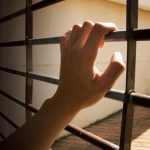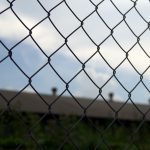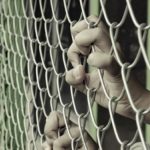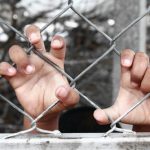The Use of Solitary Confinement on Kids Must Be Banned
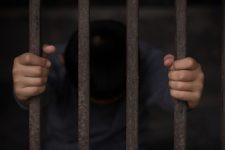
The Northern Territory passed legislation in May that prohibited the use of solitary confinement on children and young people. This followed revelations that teenagers were being held in prolonged isolation for up 23 hours a day at Don Dale youth detention centre.
Following the national exposure of this practice in the NT – which included being deprived of light, basic stimulation and sometimes water – NSW corrective services minister David Elliott said there was “no practice or provision of isolation of young people in custody” in this state.
However, just a month later, leaked documents revealed that juveniles in NSW correctional facilities were being held in prolonged solitary confinement for up to 23 hours a day and being handcuffed during the hour that they were allowed outside of their cell.
So, in October 2016, the corrections minister launched an independent review into the allegations. And just last month, the review report was finally released and it outlined that Corrective Services NSW had broken the law due to its use of prolonged solitary confinement upon children.
Meanwhile, south of the border, a young Aboriginal man is currently suing the Victorian government over the trauma he experienced from being placed in isolation for three months while he was held in an adult prison at the age of 16.
Undermining rehabilitation
Victorian Ombudsman Deborah Glass announced last week that she’s launching an investigation into the use of solitary confinement involving young people in her state. She said if the authorities are serious about rehabilitating youths, then their human rights need to be respected.
A 2017 report by the Victorian Commission for Children and Young People found that solitary confinement isn’t just being used as a method of punishment in the state’s youth justice system, but it’s also being applied at times when there are staff shortages.
And a Jesuit Social Services report released in September found that the use of solitary confinement on young adults between the ages of 18 to 24 in Victoria undermines the criminal justice system aims of reducing offending and rehabilitation.
Breaching international law
The Human Rights Law Centre called on all Australian governments in February to prohibit the use of solitary confinement on child detainees. It outlined that the practice can have debilitating long-term effects on a child. And it’s also in breach of international laws.
The Mandela Rules – the UN Standard Minimum Rules for the Treatment of Prisoners – states that solitary confinement should be prohibited in cases involving children. And the UN Rules for the Protection of Juveniles Deprived of Their Liberty does the same.
Prolonged solitary confinement is defined by the Mandela Rules as being locked up alone for 22 hours or more a day for a period in excess of 15 days. The UN document stipulates that this form of punishment should be banned for all inmates.
Behind closed doors
Section 10 of the Crimes (Administration of Sentences) Act 1999 (NSW) provides that in this state an inmate can be held in segregated custody in order to secure the safety of another person, the security of a correctional centre or good order and discipline within a centre.
When the ABC inquired about how many inmates in NSW were being detained in segregated custody in 2014, a Corrective Services NSW spokesperson said a figure couldn’t be provided as the numbers are “constantly fluctuating”, so any figure would be a misrepresentation.
And this is part of the problem with the practice of solitary confinement, it goes on behind prison walls and there’s no transparency or accountability. The use of solitary confinement has dropped by 83 percent in Ireland since 2013, when the government started publishing the data about its use.
The harms caused
The United Nations has warned that solitary confinement has irreversible effects on a child’s health and wellbeing. The practice can result in long-term developmental impairment and psychological harm, as well an increased risk of suicide and violent behaviour.
For young adults up to the age of 25 – whose brain functions and cognitive capacities are still developing – solitary confinement can result in reduced judgement and foresight of consequences, as well as other characteristics that form moral culpability.
Indeed, long-term isolation without activity and stimulation has been shown to cause depression and stress in both youths and adults. It can lead to reduced memory and decision-making abilities, along with an inability to deal with emotions.
In 2011, then UN special rapporteur on torture Juan E Méndez called for an outright ban on solitary confinement, except in exceptional circumstances. “Solitary confinement is a harsh measure, which is contrary to rehabilitation,” he made clear.
Preventing abuses in closed environments
The Victorian Ombudsman is carrying out her investigation into solitary confinement and young people using the Optional Protocol to the Convention against Torture (OPCAT). It’s an international treaty that aims to strengthen the protection of people being held in places of detention.
The Australian government ratified the OPCAT in December last year. The protocol sets up a system of independent random inspections of places of detention. And although it’s yet to be rolled out nationally, it’s the second time Ms Glass has applied the OPCAT to one of her investigations.
“A key feature of OPCAT inspections is that they should be preventative,” Ms Glass told Sydney Criminal Lawyers® last January, “focusing on identifying risk factors and protective measures to prevent abuses in the future.”
And it’s likely her investigation into solitary confinement will lead to reforms. The last investigation she undertook using the OPCAT resulted in the Victorian Department of Justice and Regulation accepting all but one of her 19 recommendations.
The wider ramifications
It’s a well-established principle that loss of liberty is an inmate’s punishment and detainees should not be subject to further deprivations whilst inside. And those who see calls to abolish the use of solitary confinement as being soft on crime may want to think again.
Jesuit Social Services case worker Elle Jackson told the ABC a few months back that she could see a link between the extensive solitary confinement a young man had been subjected to and the escalation in his offending from theft and stealing cars to the attempted murder of a stranger.
Children who end up in juvenile detention are already traumatised. And to subject them to a torturous isolation regime is not only going to have a further debilitating effect on them, but it’s also going to impact upon the wider community following their release.


